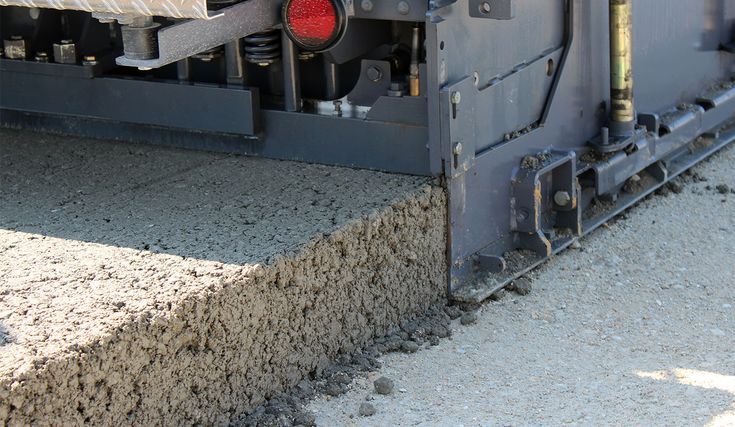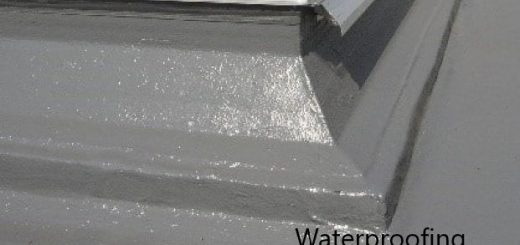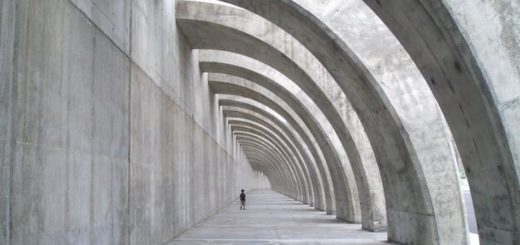Advantages of Roller Compacted Concrete
Civil Engineers have long been at the forefront of innovative advancement strategies for the construction industry. In recent decades, the use of Roller Compacted Concrete (RCC) has come to the forefront as a viable option for pavement construction. In this article, we will discuss the advantages of roller compacted concrete in construction projects and how it can benefit civil engineers.
What is Roller Compacted Concrete
RCC, or Roller Compacted Concrete, is one of the most durable paving materials on the market. It’s affordable to install and maintain, so it’s an ideal option for parking lots, driveways and roads in high-traffic areas. RCC is made with a combination of crushed rock, water, cement and asphalt emulsion. The crushed rock binds all of the other ingredients together. Once it’s been formed into slabs — which can range in thickness from 1- to 8-inches — then it’s ready to be transported to your site via truck or rail car.
Roller Compacted Concrete is a sustainable, eco-friendly construction material that has been used to build bridges, flyovers, dams and many other types of structures. Roller Compacted Concrete is made by mixing concrete with water and other additives together. The mixture is then spread out onto a surface, such as a road or another type of surface. A special machine then rolls over the mixture, pressing it into place. This helps the mixture to dry more evenly and makes it stronger when it dries. Roller Compacted Concrete is strong enough for use in places where there are heavy loads being moved over it.
Advantages of Roller Compacted Concrete
There are many advantages to using Roller Compacted Concrete. Let’s discuss each of those in detail.
- Construction of Major Structure: Major structures such as dams are constructed with roller compacted concrete. Due to the effectiveness in numerus ways, RCC are popular in construction of major dams.
- No Formwork: One of the biggest is that it can be produced without any form work or shuttering unlike other concrete products. This helps reduce costs because there is no need for scaffolding, form lining and form removal.
- Quick Production: Roller Compacted Concrete can also be made more quickly than other types of concrete.
- High Performance: Roller Compacted Concrete is a high-performance product that works well in applications where durability is important. It has excellent structural properties, including high compressive and tensile strengths, which makes it suitable for use in flooring, walls and roofs. It also has high resistance to moisture absorption and good impact resistance.
- Less Labor: Roller Compaction Technology (RCT) is the process of compacting concrete with rollers as opposed to traditional mechanical compaction methods. RTC uses a different type of roller than standard concrete mixers. A true roller compactor has steel wheels covered with rubber tires and are driven by an electric motor. The weight of the unit is usually around 12,000 pounds or more.The compactor squashes the concrete into place as it moves over the surface at about one mile per hour, achieving densities exceeding 95% in most cases. It’s an excellent alternative to conventional concrete that requires less formwork, fewer trucks and equipment operators to install, and requires less labor to construct.
- Roller Compacted Concrete is an innovative method for producing stronger and lighter structures.
- It’s also highly economical as it reduces the amount of materials needed to build a structure. Compared to conventional concrete, RCC requires about 27% less cement and 30% less aggregate by weight.
- Less Expensive: Roller Compacted Concrete is much less expensive than regular concrete because the process uses less material and manpower to produce it. The cost savings are passed on to the end users.
- Environmentally Friendly: Roller Compacted Concrete produces 40% fewer greenhouse gas emissions during production due to its reduced use of cement and energy consumption from drying aggregates in kilns (which releases CO2).
- Less Weigh on Structures: Because RCC is lighter than conventional concrete, you can place more loads on top of your building without causing structural damage or putting excessive stress on its foundation.
- Easier Assembly: With conventional concrete, workers must hammer rebar into place using heavy hammers before pouring the concrete into molds; however with RCC, workers simply roll it onto location before filling it with liquid concrete – no heavy equipment required!
- Faster Installation Time: Since RCC saves so much time while being constructed because there’s no need for specialized tools or machinery, projects can be completed faster than ever before!
- RCC is also known for its low water absorption rate, which helps to prevent the formation of potholes and other surface defects.
- RCC is less susceptible to thermal cracking than traditional concrete pavement.
The use of RCC in construction projects can provide numerous benefits for civil engineering projects. In addition to its high compressive strength and long-term cost-effectiveness, RCC is also known for its durability and low water absorption rate. RCC pavements can provide a number of advantages for construction projects, making it an ideal option for civil engineers. In addition to the advantages of roller compacted concrete, you may refer to the article or roller compacted concrete more detail aspects.




